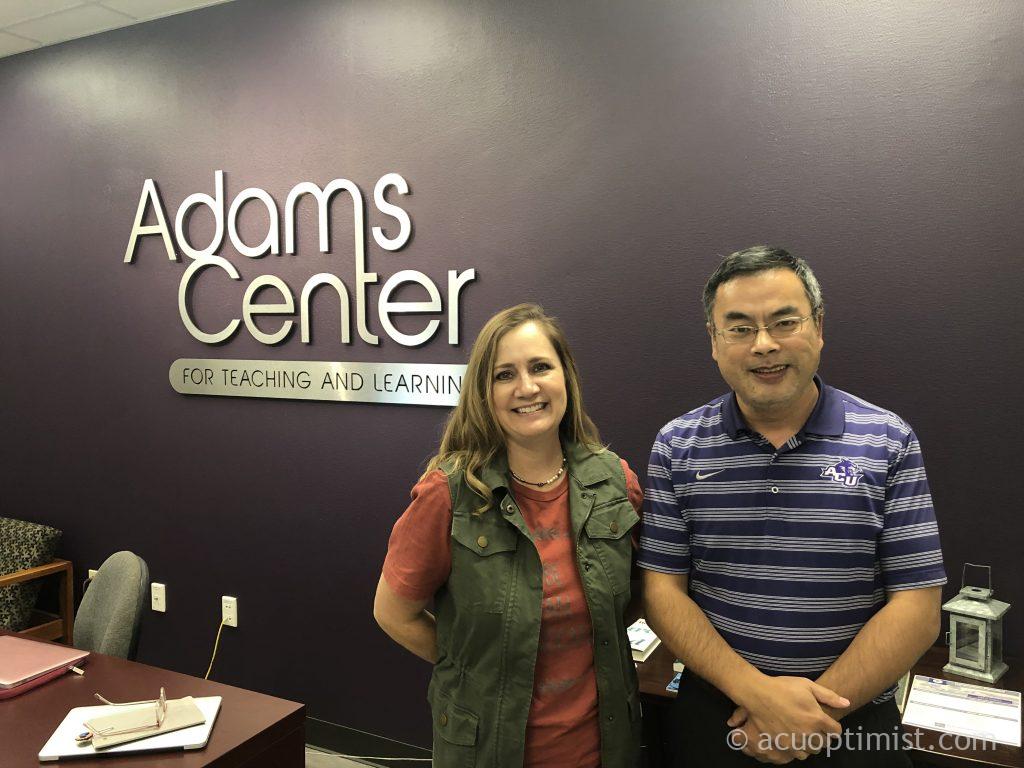The Adams Center has become the main source for faculty and staff transitioning online, providing face-to-face and online training sessions through Zoom, a video communication platform.
Berlin Fang, director of instructional design at the Adams Center, said there are some courses that may be a little difficult to translate into the online format.
“For instance, if in the classroom you are demonstrating the human brain structure, in class you can show it, but now we are having to think of some alternative ways to do it,” Fang said. “We are finding some apps, simulations online that shows that or just videotaping yourself showing this to them. Then there are some adjustments that some people need to make to their assignments. For instance, sometimes there were students who were asked to do field work, now places are closed so that can be difficult as well.”
Zoom is providing an alternative for most in-person communication, such as field work sessions. Faculty members can meet in the Adams Center to brainstorm with one another about ways to transform their in-person classrooms into an online course format.
“We offer some consultation with our faculty and helping them to address individual questions and issues,” Fang said. “Another way that we are dealing with this is we have one of our colleagues here, Amy Boone, who is listening to the meetings and she’s summarizing everything into blog posts. Those posts are being shared with faculty through our Facebook group as well as our blog.”
Tammy Marcelain, administrative coordinator at the Adams Center, is working to provide training sessions on coronavirus response through Vimeo, another video communication platform. Through Vimeo videos, faculty and staff can watch and rewatch the videos posted previously.
“In this situation there are faculty all over the United States and sometimes even on a different continent,” Marcelain said. “Recording our sessions and making them available to be watched at the viewer’s convenience makes it possible for people who might not feel comfortable leaving their home due to COVID-19 to participate in face-to-face settings, and it also allows those who are not local to benefit from the sessions.”
The Adams Center also has provided a template of courses for faculty and staff members who have never before used Canvas. However, Fang said some courses already have a very heavy amount of content in Canvas.
“Those professors have no pressure as some other professors do,” Fang said. “They actually reach out and help their colleagues around them which is pretty amazing.”
Dr. Karen Maxwell, associate professor of graduate studies in the Department of Education, has been teaching online for a long time. Currently, Maxwell has partnered with the Adams Center to reach out to other faculty and staff and help them rethink the way they teach in online sessions. Dr. Brian Burton, associate professor of digital entertainment technology, has also partnered with the Adams Center to offer suggestions to people on how to move things to online, utilizing his own past experiences with online teaching.
The Adams Center works with faculty and staff to share their examples with other professors who may benefit. Fang said he wants to encourage students to be patient because sometimes when a new environment is being used, it takes some getting used to.
“ACU has been coming together like never before,” Fang said. “Teams have been helping each other and getting things to work. The entire Adams Center staff, especially Tammy Marcelain, is doing a great job supporting everybody. It’s a great team spirit being displayed at this time of crisis.”


